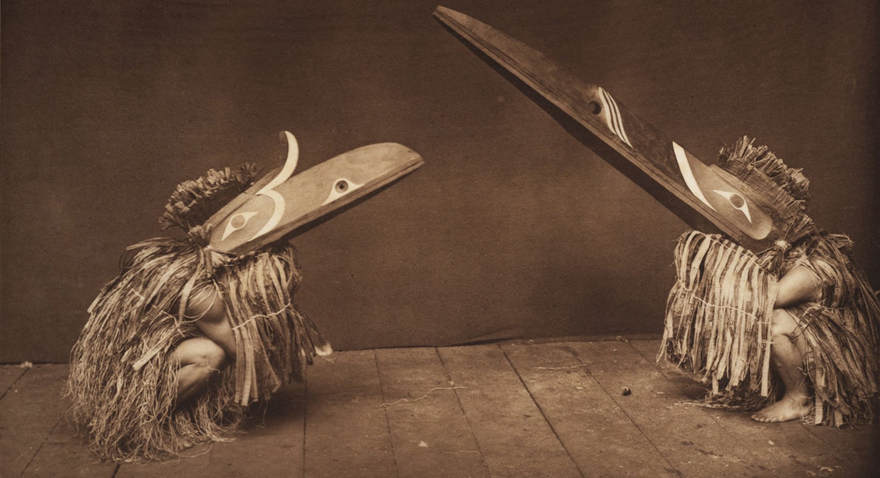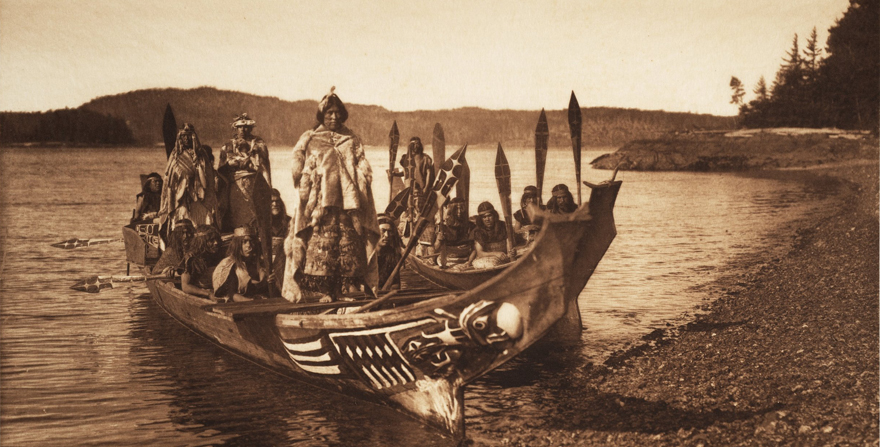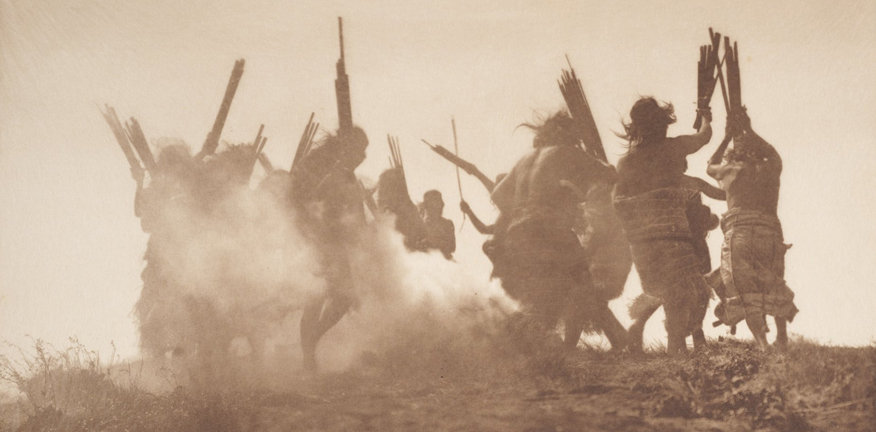
LONDON — Anthropology is known, most notoriously, as a discipline still grappling with the shackles of its murky colonial past. It’s perhaps slightly less well known for its affinity with anarchy. But if we take anarchism to mean the belief in democracy free from state apparatus, then it’s unsurprising that there’s a natural resonance between the two. A certain propensity for analysing societies without asymmetrical power structures goes a long way to explaining why so many anthropologists prefix their job title with the word ‘anarchist’. They have empirical evidence that stateless societies are within the realms of possibility. As David Graeber – an academic anthropologist recently hailed as the anti-leader of the Occupy Movement – insists, any belief in a system of anarchy has to stem from the optimistic assumption that another world is possible.
For all its paradoxes and exoticising tendencies, anthropology is arguably the only discipline which attempts to consider the full range of societal and political structures on equal terms. It has attempted to better understand societies that operate without a formal law or state, even – or especially – where these societies have been deemed irrelevant. Modernity’s fixation with progress gave rise to a view of stateless societies as static and embryonic, as existing outside of history. Without the propelling force of the dialectic, so-called primitive societies stagnate in prehistory. Such societies are seen, therefore, as “entirely outside the concern of the philosophy of history” – in the words of Hegel, buffeted along by his commitment to teleology.
Mauss postulated that gift economies were based on a refusal to calculate.
Hegel’s view of history emphasises the importance of reason, rationality and progress. Above all else, Hegel’s philosophy focuses on the state, which he views as the universal principle with which the subjective wills of the citizens must coincide to reach some kind of perfection. Whilst anthropologists’ close scrutiny of stateless societies always risks incurring accusations of facile primitivism, on a most basic level, direct experience of fieldwork amongst the – dare I say – savages, has highlighted the fact that valid alternatives to the state model do exist. They’ve found that societies can successfully operate without constant regulation from a systematic structure of coercion. And, counter to prevalent beliefs, they don’t all end up killing each other. Regardless of how practical its implementation might be, analyses of power which is not hierarchal, and leadership which is not authoritative, can challenge the very notions upon which our conception of civilisation is based. The results can be astonishing.
As early as 1925, the founder of French anthropology, Marcel Mauss was famously advocating the alternative morality of stateless societies in his “Essay on the Gift”. His study of gift exchange in kinship — like the potlatch of the American Indians of the Pacific Southwest and the elaborate Kula rings of the Trobriand — challenged the universal assumption that economies without markets or money must operate by means of barter. Far from seeking to engage in market behaviour, in which each party strives to get the best goods possible at the least cost to themselves, Mauss postulated that gift economies were not based on calculation at all, but on a refusal to calculate. It was not that they had failed to develop a system sophisticated enough to yield profit in an efficient way, but rather that these exchange systems were rooted in an ethical system which consciously rejected the basic notions on which we generally believe economics to be based.

Mauss, a revolutionary socialist, aligned himself with many classic anarchist positions, but he never actually described himself as one. Significantly, another Frenchman, Pierre Clastres – who was a self-proclaimed anarchist – became well known for making a similar argument to Mauss on a political level. Whilst Mauss used anthropology to illuminate ways in which it was possible to build an anti-capitalist economy (as a response to the crisis of Lenin’s socialism), Clastres used anthropology to demonstrate how it was possible for power to operate in an egalitarian, non-coercive manner. By considering the power structures of stateless societies on their own terms Clastres found a way to politicise primitive societies. In doing so, he radically challenged the notion, outlined most prominently by Thomas Hobbes, that state power is a necessary illusion.
When Hobbes wrote Leviathan, his treatise on the social contract, in response to the bloody English Civil War, he claimed that submission to an all-powerful state was not only favourable for an egalitarian society, but in fact essential to the survival of the species as we know it. Society left to nature would descend to a state of “warre, where everyman is Enemy to every man”. For the past three centuries, Hobbes’ claim that civilised society can only exist through coercive power has become a central tenet of mainstream political activity, both on the left and right. Since the threat of war is omnipresent; we enter into the social contract and become subjects to the great Leviathan, the state, because without it there’d be nothing but carnage lying in wait.
Clastres, perplexed by the question of voluntary servitude, puts this axiom on trial. His work constantly reiterates the question: Why do we forsake autonomy and obey a government? If the state relies on the strict authority of the few against the many, then how did the state triumph? Or, in the words Etienne de la Boétié, “What misfortune so denatured man?”
The use of the word ‘denatured’ here is particularly instructive, as, arguably, it is differing conceptions of ‘human nature’ that lie right at the heart of this debate. The Hobbesian stance assumes that human nature is something wild, warlike, and irrational, to be tamed by the civilising forces of state control. Today, Western politics maintains this stance. But by examining cultures with different attitudes towards power what anthropology can show us is that such an assumption is just that: as assumption.
You are worth no more than anyone else; you are worth no less than anyone else.
Through his extensive fieldwork among the Guayaki Indians of Paraguay, Clastres relayed how power can be effectively organised without a separate apparatus outside the social body. His analyses suggest that it is possible to speak of power outside of the domain of command-obedience relations. Take, for example, his descriptions of the seemingly paradoxical ‘rule’ of American Indian chieftainship. Whilst western sensibilities would automatically assume that a chief would necessarily possess some means of exerting power over the rest of the group, Clastres highlights how, in many instances, the most notable characteristic of the Indian chief is his almost complete lack of authority. Clastres insists that the role of the chief is essentially reconciliatory; he is not a man of power but a peacemaker and arbiter. A chief is required to possess great oratorical talent which, alongside his prestige and generosity, he uses in an attempt to maintain the social order. But, at any point, the chief remains in danger of being disavowed.
Anyone who associates political power with ruling authority would surely find chieftainship in this vein not just unrewarding, but worryingly unstable. Yet, Clastres insists that the point is not to question the chief’s lack of authority in itself but to understand such power relations on the terrain involved. How can one explain the bizarre persistence of a power that is practically powerless?
Clastres describes the ritualised act of the chief’s speeches, which take place daily at daybreak and dusk. A chief does not acquire the right to speak simply on the grounds of his chieftainship – but his chieftainship obliges him to speak. The tribe demands to hear him: a silent chief is no longer a chief, but, in yet another assault on our expectations, Clastres goes on to relay that as the chief talks, nobody pays him any attention. Regardless of the strength of his voice or his oratory skill, the rest of the group appear to carry on about their business as if nothing were happening. Power is not found on the side of the chief, so it follows that his words cannot be authoritative or powerful.
Clastres uses these ethnographic findings to claim that it is in the nature of primitive societies to know that violence is the essence of power, and that speech is the opposite of violence. By restricting the chief to the area of speech alone, the tribe makes certain that no displacement of forces will come to upset the social order. The chief cannot use words for his own personal gain or for reasons of political expediency, because the chief who tries to appropriate power in this way is abandoned. Primitive society is the place where separate power is refused, because the society itself, not the chief, is the real locus of the power.

Clastres’ work opposes the Hegelian notion that the state is the ultimate destiny of all societies. Far from the state being the precise object of world history, stateless societies, he argues, actually possess specific preventative mechanisms to ward off the formation of a state; the chieftain’s powerless oratory being one such device. Similarly, Clastres describes the ritualistic act of marking bodies as another way of thwarting the human desire for power. Unlike the written law of hierarchical society which is imposed by the few on the many, the law of primitive societies, which is inscribed onto all bodies says: “You are worth no more than anyone else; you are worth no less than anyone else.” These societies are not simply lacking a state. They are, in Clastres’ words, societies against the state.
As Mauss challenged the assumed logic of the market economy, so Clastres questions the notion that power can only be identified as coercive authority. Both anthropologists challenge the evolutionist logic which assumes that the state and the market economy are the inevitable destiny of all societies. But, more than that, they both make the radical suggestion that – far from being incapable of reaching a stage of such perceived advancement – they are making a concerted effort to contain human capacities for greed and power in a way that prevents these social structures from forming.
In opposition to Hobbes’ description of primitive warfare as perpetual and chaotic, Clastres identifies war as the ultimate preventative mechanism which enables such societies to ward off the arrival of the state. As Clastres’ one-time collaborators, Gilles Deleuze and Félix Guattari, have suggested, just as Hobbes saw clearly that the state was against war, Clastres insists that – for primitive societies – war is also against the state.
The question isn’t whether or not people are “good enough” to exist in a particular society or not . . .
Here we can see anthropology’s value, not only as a discipline which analyses old, existing, and so-called primitive cultures, but which also allows us to imagine new ones. Anarchy, today, is variously judged as destructive, violent and nihilistic; it is used synonymously with chaos and disorder. Yet, anarchy, as understood by most anarchists, actually means the exact opposite. An anarchic society – like the egalitarian ones that Clastres studied – is based on order, autonomy of the individual and cooperation without rulers. Whilst many anarchists, following Russian revolutionary Mikhail Bakunin, believe that chaos and disorder have inherent potentiality, and that destruction can be a creative act, their ultimate aim is to create a social order which eliminates the need for lawful violence altogether. Striving for the abolishment of social institutions that use coercive force to make way for a new order, is a far remove from the desire for a permanent state of disorder and violence. In fact, some of the world’s best-known anarchist thinkers, Henry David Thoreau, Tolstoy and Gandhi, were tellingly also pacifists.
Another common criticism lodged against anarchism is that it is too idealistic. Anarchists’ alternative moralities and visions of a freer world, with — of all suggestions — shorter working hours, have inevitably been dismissed as utopian; it’s an occupational hazard of re-imagining existing social structures. Still, a more considered look at anarchism would reveal that it fosters a view of humanity that is resolutely realistic. Humans are neither innately bellicose nor are they naturally benign; they have the capacity for both good and evil. The question, as writer and social critic Paul Goodman has perhaps most eloquently expressed it, isn’t whether or not people are “good enough” to exist in a particular society or not. But rather, how can social institutions be developed in a way that is most conducive to bringing out human capacities for intelligence, grace, sociality and freedom. Anarchists may need the necessary hope and imagination to envision a different world; anthropologists are particularly well-situated to guide them on how to make it a reality.
This article first appeared in The Journal of Wild Culture in December 2012.

SARAH LESTER is a writer, researcher and editor; specialities include social media and online publishing. Sarah's writing is strongly driven by her background in anthropology and cultural politics.
Image credits: All images by Edward S. Curtis courtesy of Smithsonian Institution Libraries Kotsuis and Hohhuq - Nakoatok (top); Wedding Party- Qagyuhl (middle); Dancing to Restore an Eclipsed Moon - Qagychl (bottom).

Comments
This is a wonderful article
This is a wonderful article that I first read on my iPad twice, then printed out, highlighted and now stored away in my files. Sarah has done a fantastic job here and really opened my mind to what the ideals of an anarchist really are. I am relatively new to Anthropology (just starting my second year) and finding this kind of work is a real treat.
This article has been a perfect compliment to my winter reading of Dr J Diamond's 2012 book 'The World Until Yesterday'. Thank you again for sharing and will look out for more articles like this.
I enjoyed this article quite
I enjoyed this article quite a bit.
My reply:
I am under the assumption that anthropology as a discipline does not attempt to consider culture on equal terms, in fact, it is the opposite, if one were to look at the underlying power dynamics, which allow for a voice to be heard.
Most anthropologists come from a well off background and have the money and time, to travel and write. A poor student may very well be able to do the same, but not without prostrating to obscure jargon (very little time to decode someone like Bourduieu...) or even worse the state, and the academics that support the state, which are the ones that decide if a project gets funding. In the end, it is still hierarchy that decides the narrative, within the field itself, and very few anthropologists are concerned about this. Therefore there is not really an attempt to report and look at culture on equal terms.
Perhaps combined with a fetish for jargon, (for we know the power of 'the obscure', a rather fun hobby, but when applied to society as a praxis, it becomes in direct opposition to anarchism) and authoritarian power structures on which anthropologists rely: chairs, directors, the state etc, is why academia has adopted Marxism as their naughty child and anarchist thinkers such as Kropotkin, Reclus etc are only mentioned in specialized classes, if at all.
On a side note, looking at this as objectively as humanly possible, Clastres' "Chief analogy"... we have no idea what was going through the minds of the people , this assumption that they were not listening to the chief, undermines (not completely) his observation and therefore his discovery.
It could be that they were listening, their actions reflected a distribution of power (from spoken word and action) that was obviously alien to Clastres, ie, one doesn't have to kneel and bow, to act.
Merely some thoughts from a traveler. Excellent article! Very thought provoking.
Thank you so much for writing
Thank you so much for writing this article. It is really deep and inspiring. Anthropology is something fascinating, like anarchism. You were perfect at this junction.
Interesting.
Interesting.
But I expect this only works on small societies.
Also the notion that the state is against citizens seems kind of prejudiced to me. I willingly adhere to the rules of the state because they beneift me, the way red and green traffic lights do.
Though I may have to rethink this under donald Trump ...
Add new comment